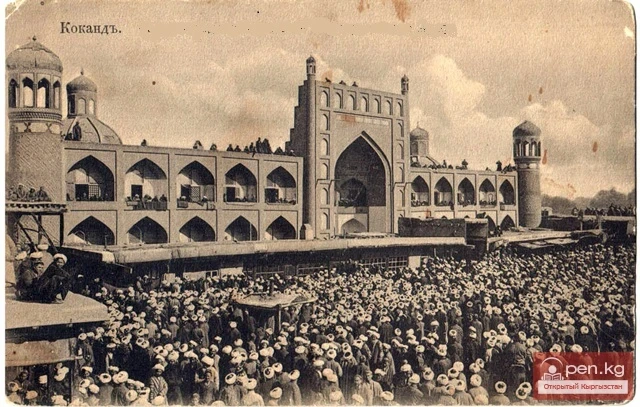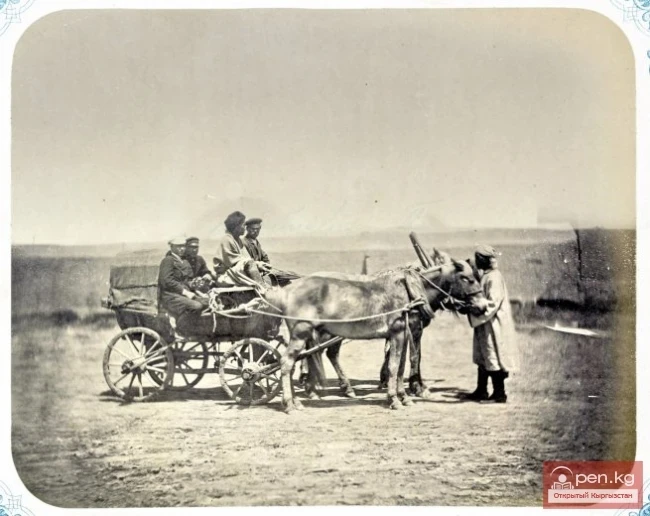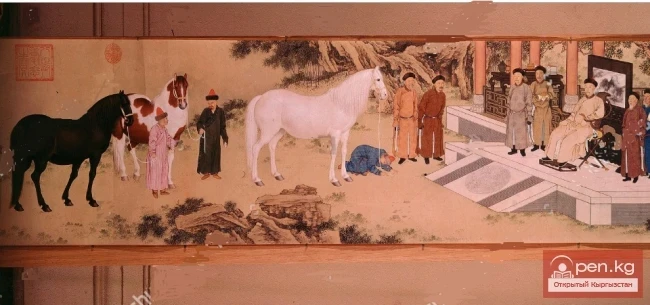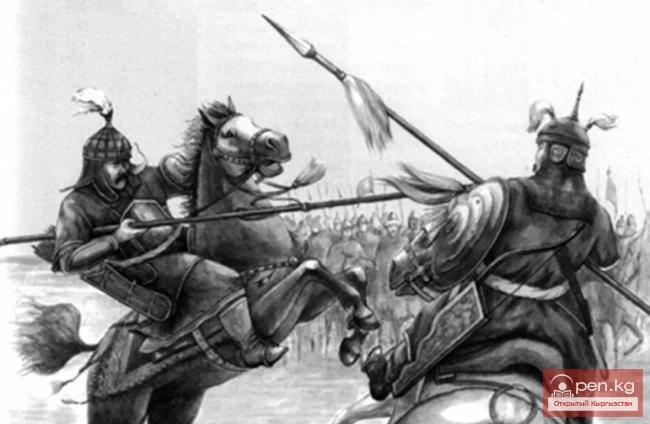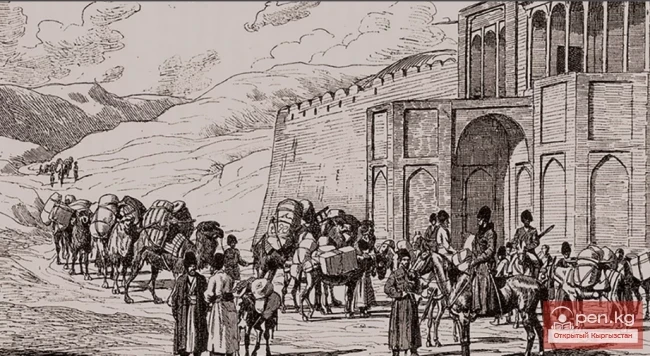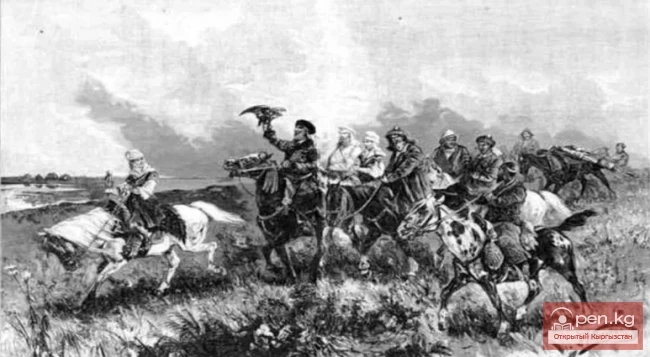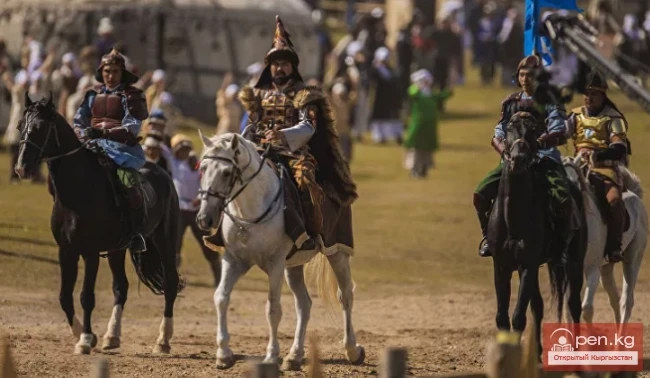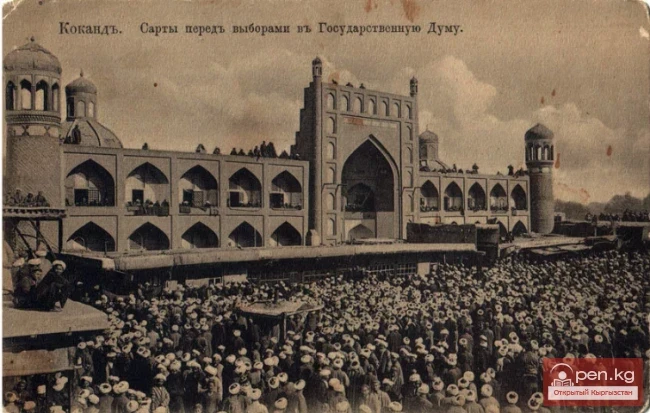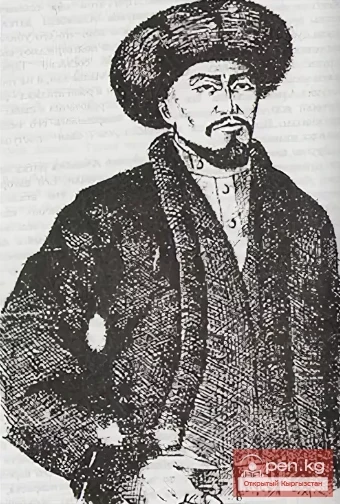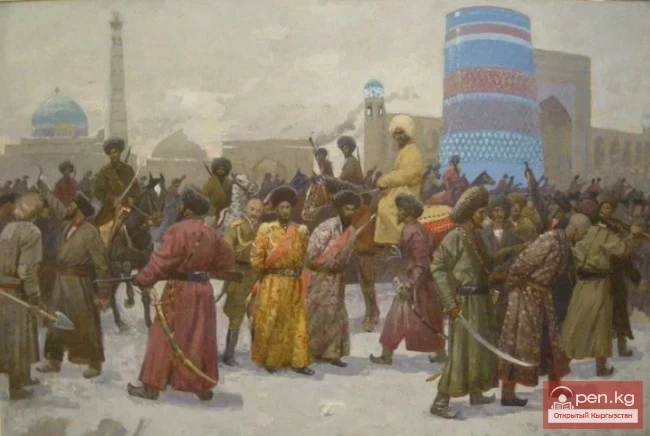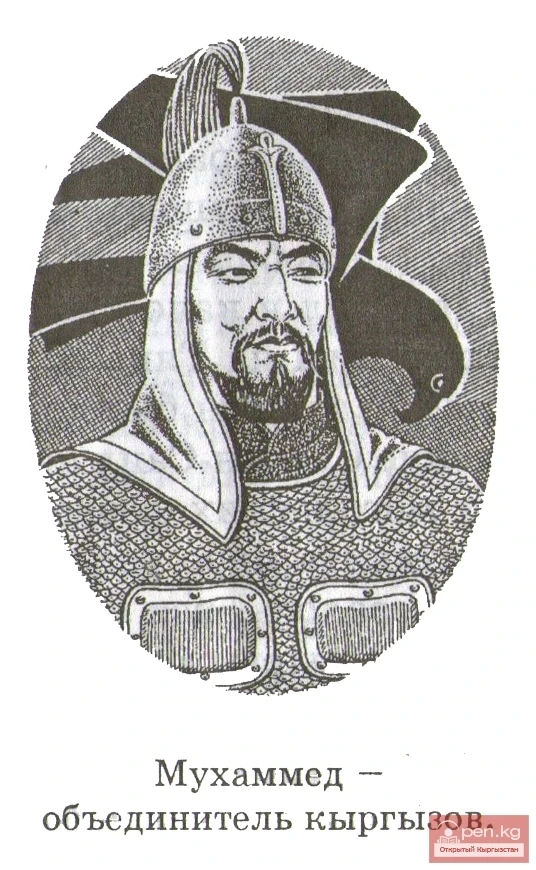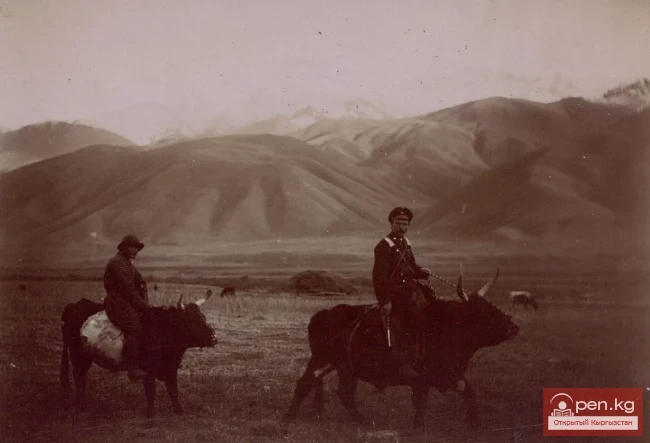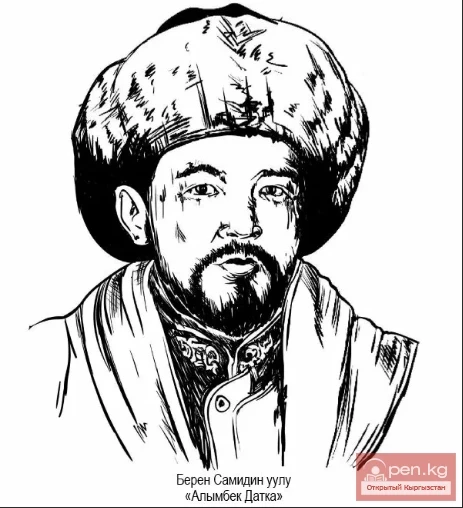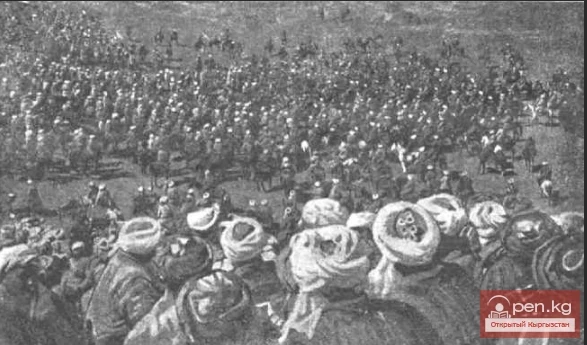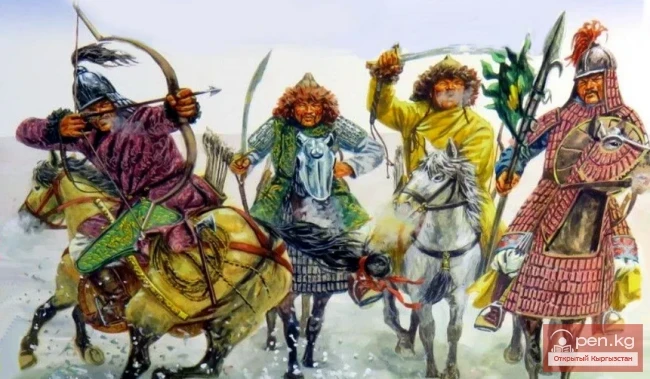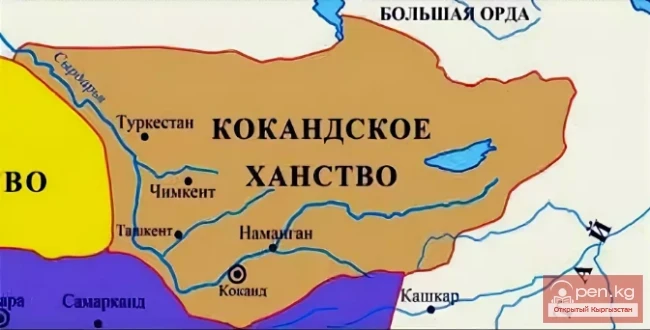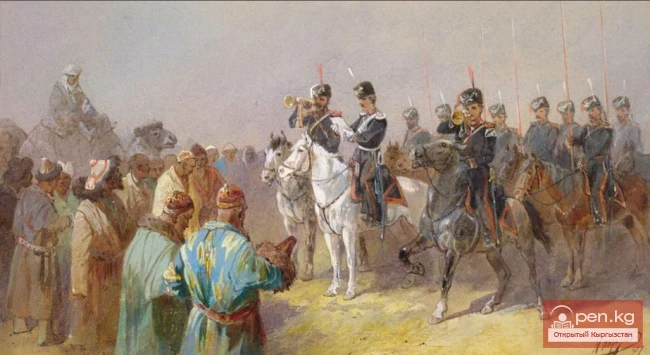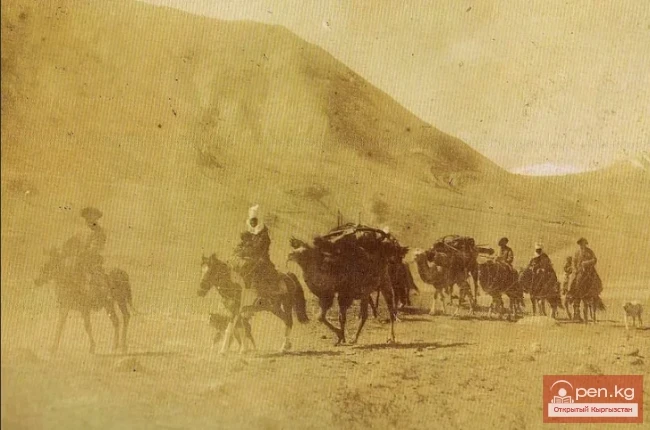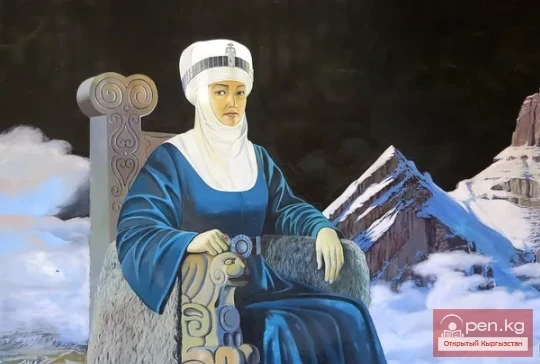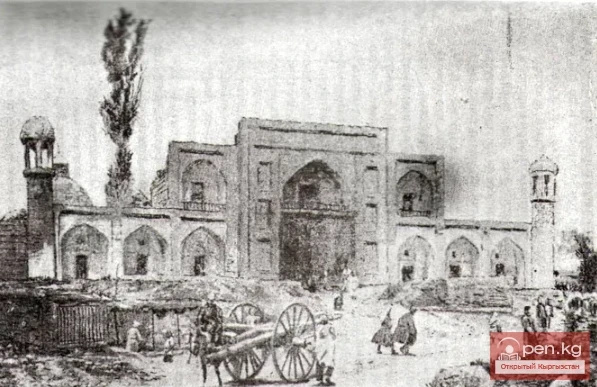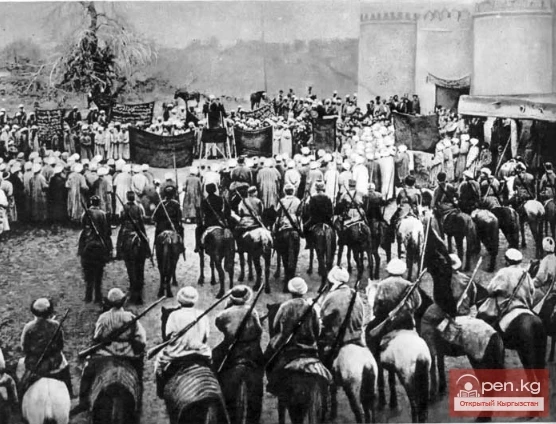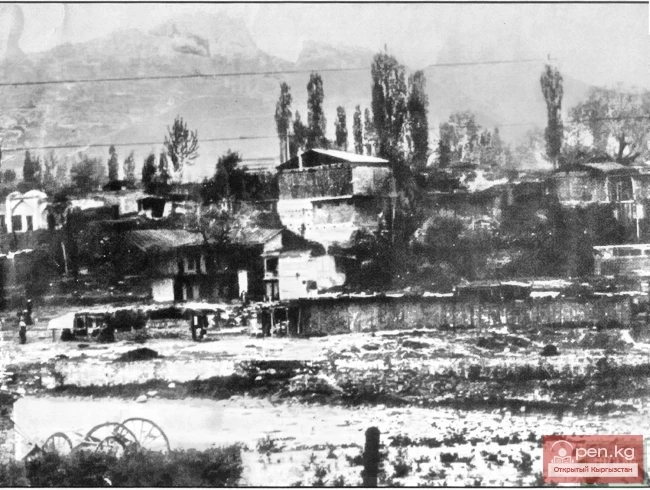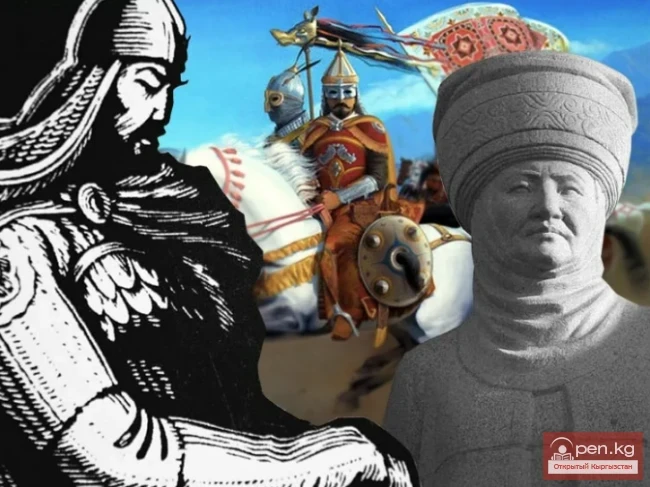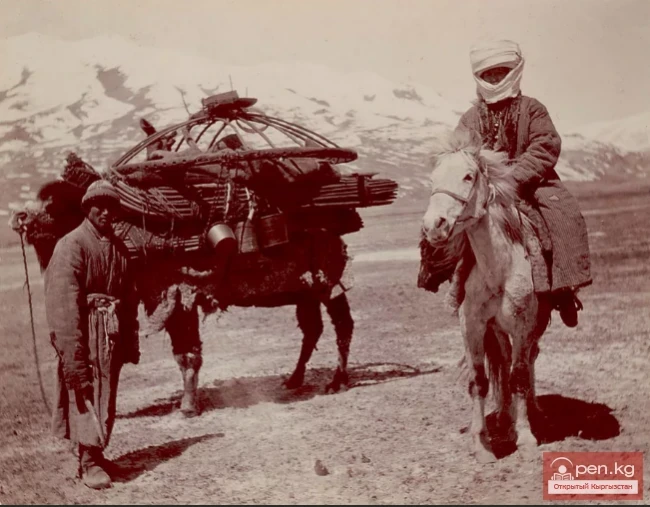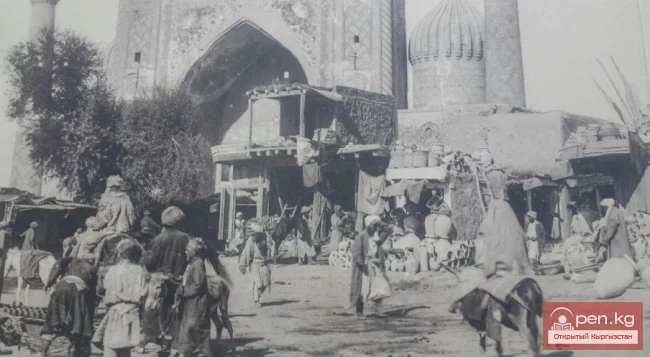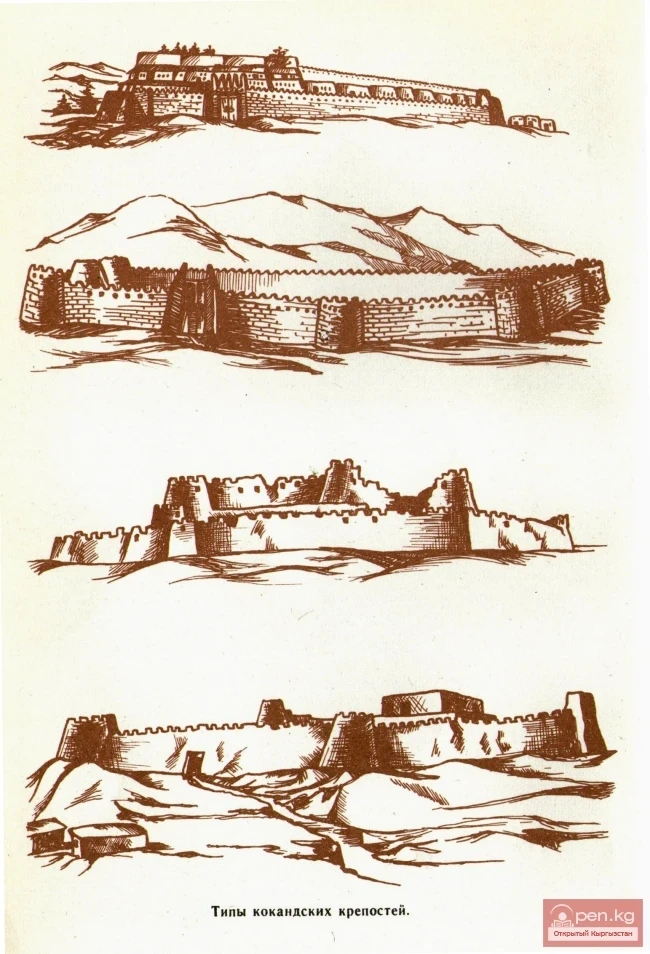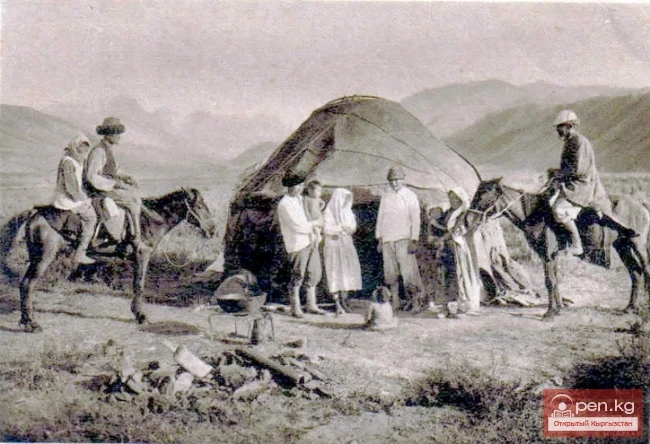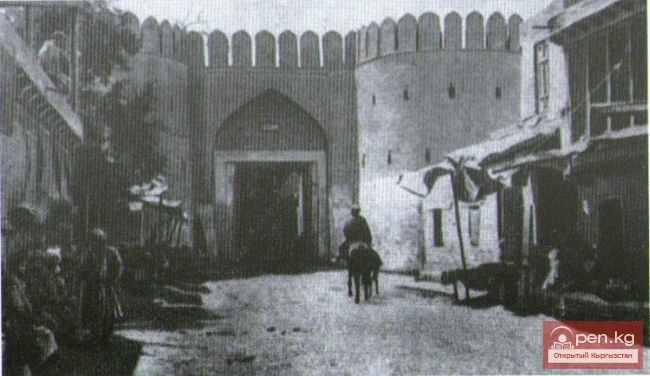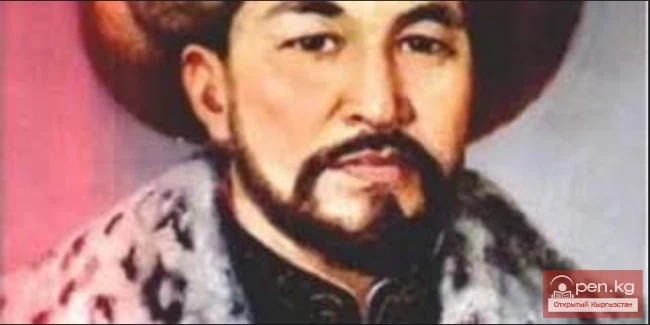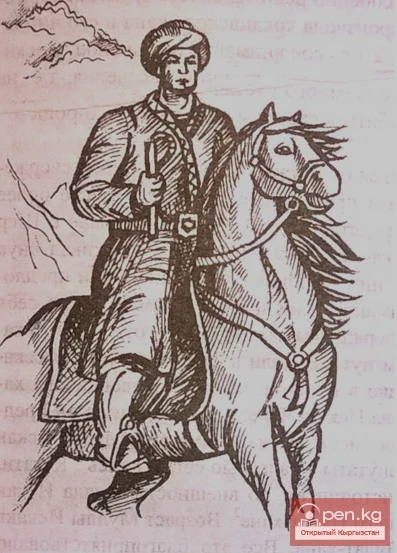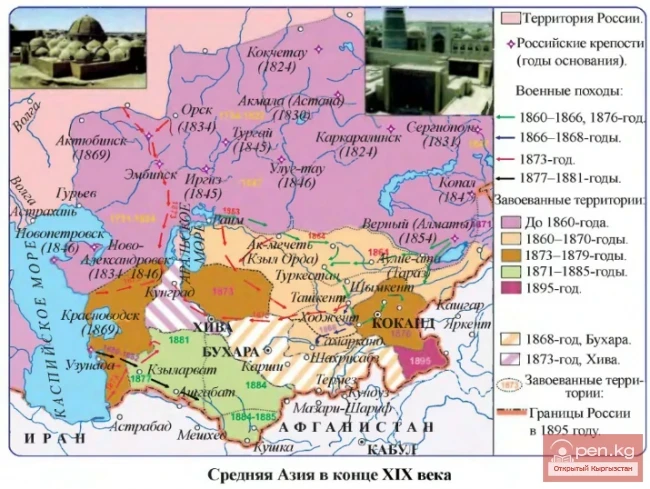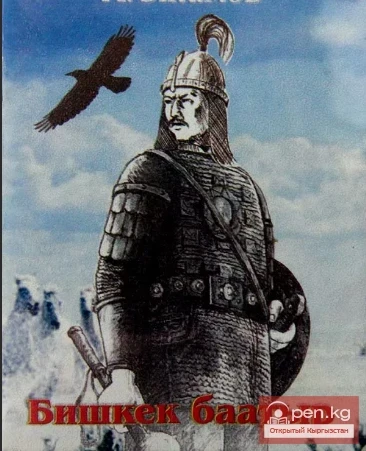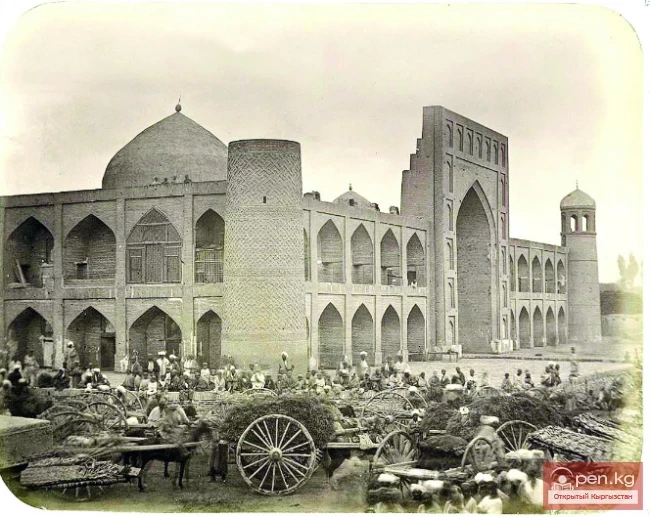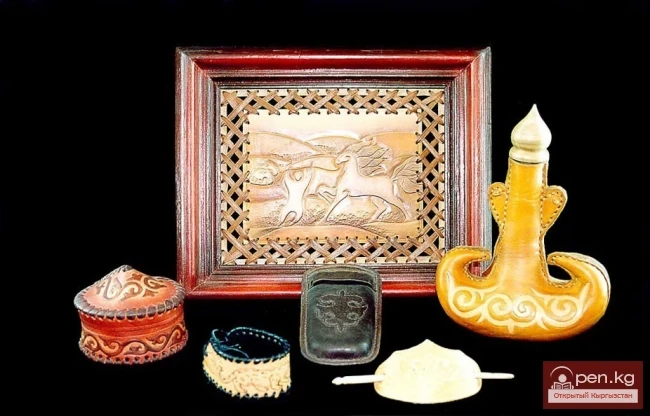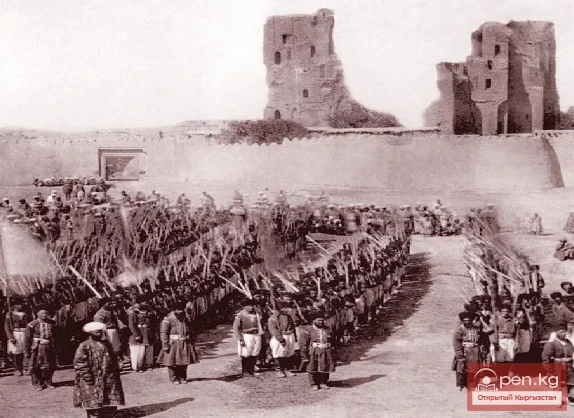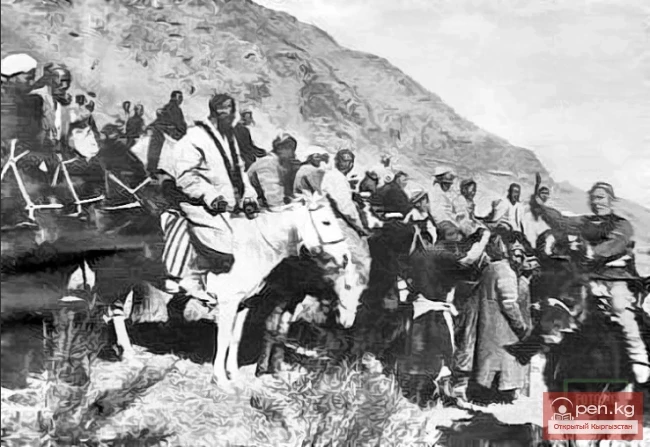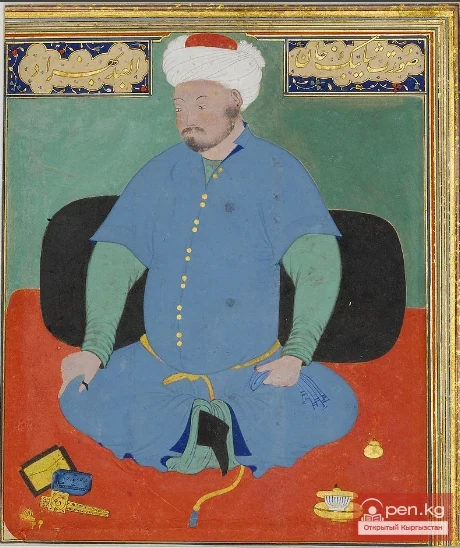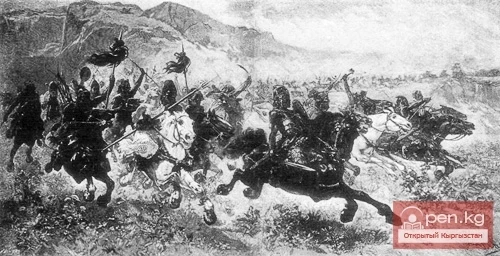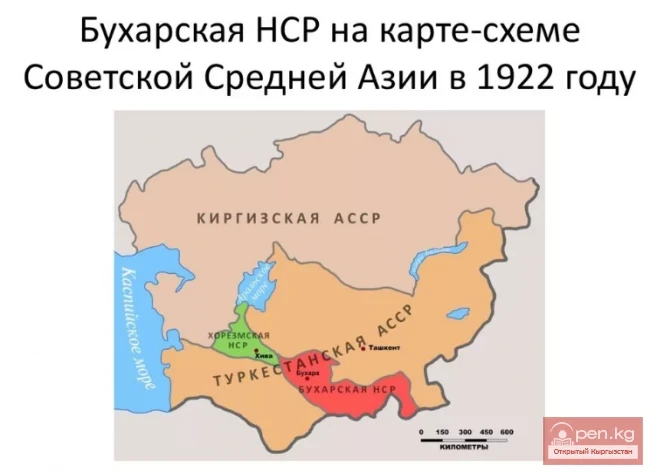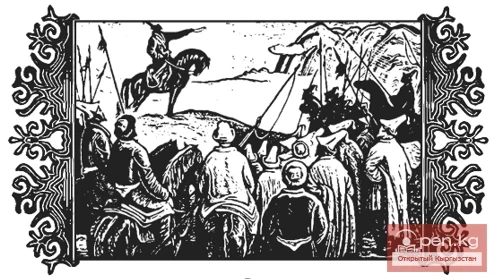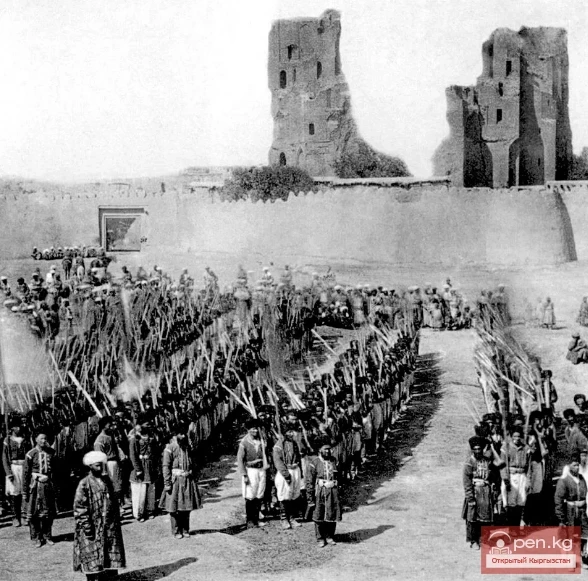
The Bukhara Invasion of Fergana
The successful conquest of Kyrgyzstan's territory by the Khans of Kokand was facilitated by inter-clan and tribal feuds among Kyrgyz feudal lords, who refused to unite even in the face of a common enemy. Thus, in late summer 1821, Omar Khan sent Beknazar-biy - his loyal Kyrgyz feudal lord, who led the clan of Kutluk-Seyid and was simultaneously the hakim of the city of Kasana - to subjugate the Kyrgyz of the Sarybagysh clan, who were nomadic near the city of Osh on the way to Kashgar. Omar Khan ordered that "the clan of Kutluk-Seyid with their detachment [lashkar], having taken care of the equipment and supplies for gunfire, should set out with all diligence on horseback.
It was ordered that, while exterminating the Sarybagysh, no mercy should be given to anyone from... the clan...". To assist the Kyrgyz feudal lord in his raiding expedition, a detachment of Kokandis was assigned. "Having committed terrible plunders and murders, among which neither women nor children were spared, taking a large booty [mainly livestock] and a mass of captives," - noted in Kokandi sources, Beknazar-biy returned to Kokand with the Khan's detachment.
As a result, not only through the strength of their arms but also by skillfully exploiting the rivalry and enmity among the Kyrgyz feudal lords, the Khans of Kokand expanded their possessions at the expense of neighboring southern Kyrgyz lands. Thus, in the interfluve of the Naryn and Kara-Darya rivers were the fields and homes of Kyrgyz farmers. In the popular 19th-century work "The Mirror of Victories," it is stated that their homeland, like that of the Kipchaks, was the vicinity of Andijan and Osh. And it was through them that the trade route to Eastern Turkestan and India lay.
Speaking of commerce, one of the most important trade routes ran directly through Osh to Kashgar. To ensure its safety, Madali Khan ordered the construction of two fortifications in Alai in the 1820s - Sufi-Kurgan and Kyzyl-Kurgan, which was carried out by the Andijan hakim Isa Datka. This later played a significant role in preventing Qing aggression in Fergana. When Chinese troops undertook a campaign from Kashgar to Kokand, they did not dare to take the Alai fortifications and, after standing before them for 20 days, retreated empty-handed.
In the early 1840s, the Bukhara invasion of Fergana began. Temporarily, power on the Kokand throne fell into the hands of the emir's appointee from Bukhara - Ibrahim-Khayal Parvanachi. He, as a true conqueror, immediately imposed exorbitant taxes on the population, and the Bukharan soldiers who came with him began to act lawlessly and plunder the inhabitants without punishment. Soon this led to a general uprising in Kokand, in which the Kyrgyz played an important role. The Kyrgyz feudal lords decided to elevate Sheraly, who had been languishing in the nomadic camps in Talas, to the throne - one of the descendants of the Kokand dynasty of Ming. Taking advantage of the popular uprising, the ruler of the Kyrgyz clan Kyrk-Ogul, Yusuf-Minbashi, with his supporters brought Sheraly from Talas to his clan's nomadic camps along the Kara-Suu River in the vicinity of Osh.
Rebel detachments of Kyrgyz and Kipchaks began to gather here from all sides. Here, at the mazar of Safid-Bulan, following traditional nomadic rituals, Sheraly was raised on a white felt and declared Khan. From here, the significant army, consisting mainly of Kyrgyz and Kipchak rebels, easily occupied fortresses, villages, and cities (presumably without a fight, including Osh), and triumphantly entered Kokand. Ibrahim-Khayal fled to Bukhara. As noted in a Kokandi source, he ruled for only a month and seventeen days (though there are other accounts - 79 days), after which an uprising broke out, resulting in "from the group of Sartiya and Kypchak and Kyrgyz in agreement with all the people of Fergana" Sheraly was elevated to the throne.
Let us describe this extraordinary personality in more detail. Initially, Sheraly was a rather indifferent to power, peace-loving person. Rumor attributed to him the following couplet: "Usually, when khans embark on a path, rain falls (prosperity pours). What kind of Khan are you when the blood of the people flows from your eyes?". However, soon "good words" diverged from his deeds. The methods of governance, tax oppression, and exactions of Sheraly, surrounded by greedy feudal lords who elevated him to the throne, did not differ from those existing during the reign of his predecessors.
Events of the Second Half of the 18th Century in Southern Kyrgyzstan
